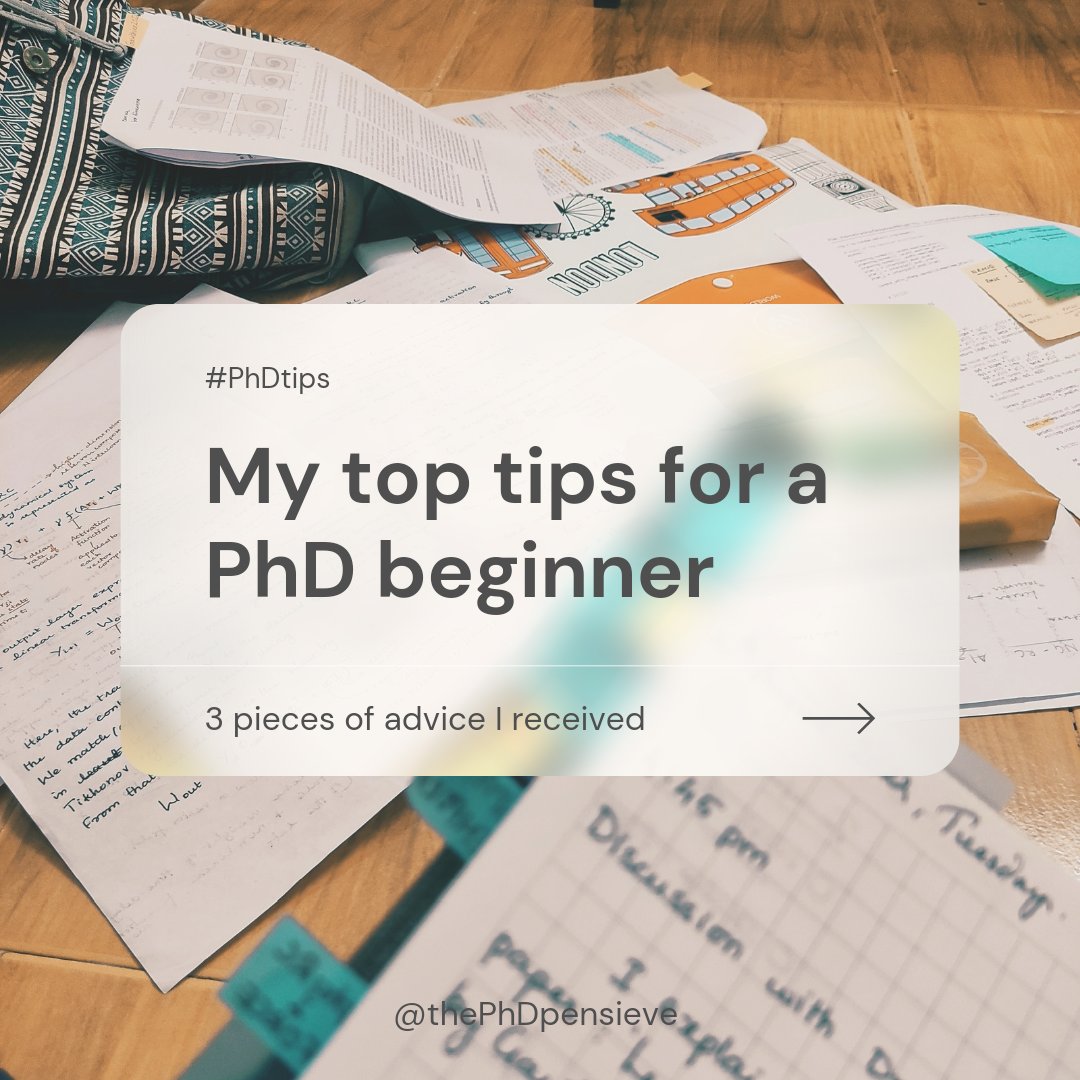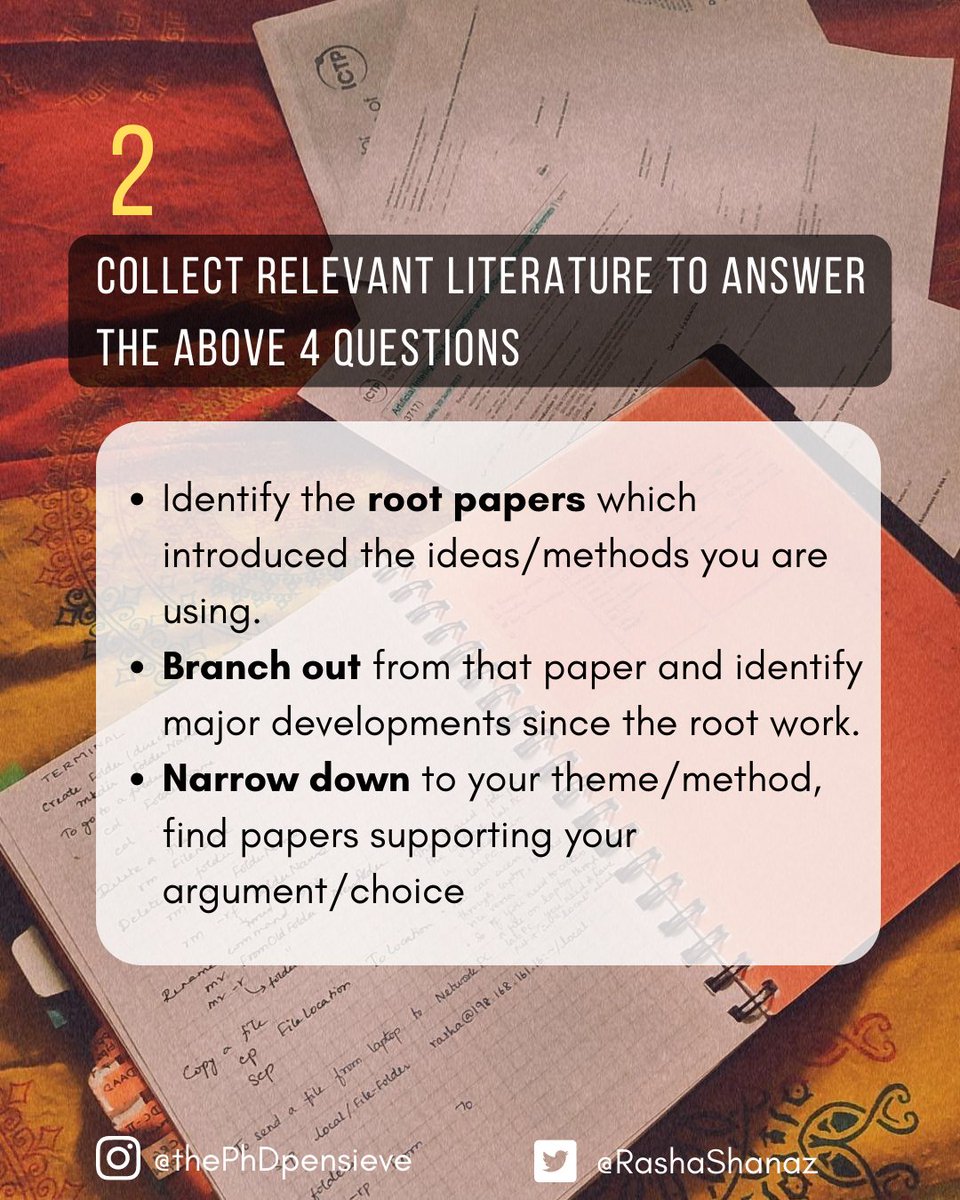Have you ever searched for "How to do a #LiteratureReview quickly/in 1 day/3 hours"?
And then spend the entire time getting lost in searching/ wallowing in tangential directions?
Here is a🧵on Quick #LitRev technique...
#AcWri #AcademicTwitter #PhDtips #phdlife #ScienceTwitter
And then spend the entire time getting lost in searching/ wallowing in tangential directions?
Here is a🧵on Quick #LitRev technique...
#AcWri #AcademicTwitter #PhDtips #phdlife #ScienceTwitter

From my fair share of struggle with literature reviews, I devised a technique that helped me do *quick* literature surveys, especially when I needed to
- write a #grant #proposal
- improve a half-written #manuscript
- learn a new method/theory
So, here you go...
- write a #grant #proposal
- improve a half-written #manuscript
- learn a new method/theory
So, here you go...
1️⃣Collecting literature: Research Rabbit App
My go-to tool for literature discovery+visualize connection b/w them. (very essential for writing your LitRev, as you will need to draw connections between different works.)
My go-to tool for literature discovery+visualize connection b/w them. (very essential for writing your LitRev, as you will need to draw connections between different works.)

...#ResearchRabbit
- In the app, search the topic you need articles for, create a collection
- It will automatically make connections b/w the articles & suggest papers based on your selections
(Make sure to stop when you find yourself going down the Rabbit Hole ;) )
- In the app, search the topic you need articles for, create a collection
- It will automatically make connections b/w the articles & suggest papers based on your selections
(Make sure to stop when you find yourself going down the Rabbit Hole ;) )
2️⃣Extracting info: Skim&Annotate📑
After collecting the literature,
- quicky read the abstract and decide which ones are important/relevant.
-Now skim the chosen papers & annotate the most important things you find. (I use paper&highlighters / annotator in @mendeley_com)
After collecting the literature,
- quicky read the abstract and decide which ones are important/relevant.
-Now skim the chosen papers & annotate the most important things you find. (I use paper&highlighters / annotator in @mendeley_com)

...#Skim & #Annotate
- Optional: categorize the articles and assign a colour for each paper.
(Don't spend more than 10 minutes per paper. You can always go back and read the article thoroughly after completing this task)
- Optional: categorize the articles and assign a colour for each paper.
(Don't spend more than 10 minutes per paper. You can always go back and read the article thoroughly after completing this task)
3️⃣Organizing thoughts: The Sticky Note Method 🗂
Here comes my favourite part. I developed this technique inspired by a lot of tools I found on the internet. The #StickyNoteMethod is to capture, rearrange and construct coherent thoughts.
Here comes my favourite part. I developed this technique inspired by a lot of tools I found on the internet. The #StickyNoteMethod is to capture, rearrange and construct coherent thoughts.

...#StickyNoteMethod
- write down the essence of each article in a separate sticky note.
(use different coloured sticky notes for different categories)
- After doing this for all the papers, stick them in a board/notebook
- Rearrange them till you get a coherent flow!
- write down the essence of each article in a separate sticky note.
(use different coloured sticky notes for different categories)
- After doing this for all the papers, stick them in a board/notebook
- Rearrange them till you get a coherent flow!
That's it.🤓
Now you can start writing your review!!
Did you find this useful?
I'd love your comments on my technique
& pls RT for this to reach more people❤️
Now you can start writing your review!!
Did you find this useful?
I'd love your comments on my technique
& pls RT for this to reach more people❤️
5000 likes!??? Omg people, thank you so much for making this reach soo many people!!! ♥️
Check out my instagram page 🤓instagram.com/thephdpensieve…
I share more of such tips and tools there!
Check out my instagram page 🤓instagram.com/thephdpensieve…
I share more of such tips and tools there!
Also, check out this tweet if you want a simple, functional AND ✨pretty✨ tool for planning your PhD/projects: #GanttChart
You'll find the link to a FREE template in the tweet🔗
You'll find the link to a FREE template in the tweet🔗
https://twitter.com/RashaShanaz/status/1404171490279399424?s=20&t=k1zSXMT9V3AjHd82w7maFw
Here is a good bunch of tips that complement my technique!
https://twitter.com/jeffguhin/status/1327316164129615872?s=20&t=hYzdV3Q9HGR_cZ3VQ4Lv_A
• • •
Missing some Tweet in this thread? You can try to
force a refresh
















